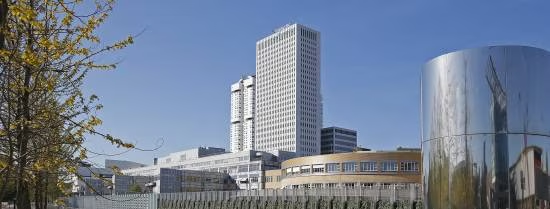The Generation R study on the health and development of thousands of children growing up in Rotterdam is celebrating its 20th anniversary. Professor of paediatrics and research leader Vincent Jaddoe looks back and ahead. "The first 1,000 days in life are crucial for health," he says.
Source: Erasmus MC
Text: Elaine Berghout
More than 7,000 children have been taking part in Erasmus MC's Generation R study for 20 years. Participants started in the study as foetuses, later they visited often as babies and toddlers, and as children and teenagers once every four years for all kinds of examinations at the Generation R research centre. They are now young adults answering questions about their physical, mental and social health themselves.
Generation R involves more than 150 researchers from 20 different departments at Erasmus MC. The results appeared in more than 1,200 scientific publications that are read worldwide. "It says something about the participants of the study and the value that Erasmus MC, as well as partners such as Erasmus University and the Municipality of Rotterdam, place on collecting this data," says professor of paediatrics and research leader Vincent Jaddoe.
1,000 days
Generation R is a prospective study. Jaddoe: "We follow the participants over time and look at what the influences early in life are on how the child functions later in society. For example, what role do genes, upbringing and lifestyle play? Ultimately, we want every child to be able to develop optimally. We are trying to map out what is needed to achieve this." The central question is: why does one child develop optimally and another not?
This question can be partly answered after 20 years. "We have learned that the very first phase of life, aka the first 1,000 days, is crucial. During that period, development goes super fast. From an egg and sperm fusing together to a 2-year-old who walks, runs, jumps and has emotions."
Read the complete article on the website of Erasmus Medical Centre (in Dutch).

